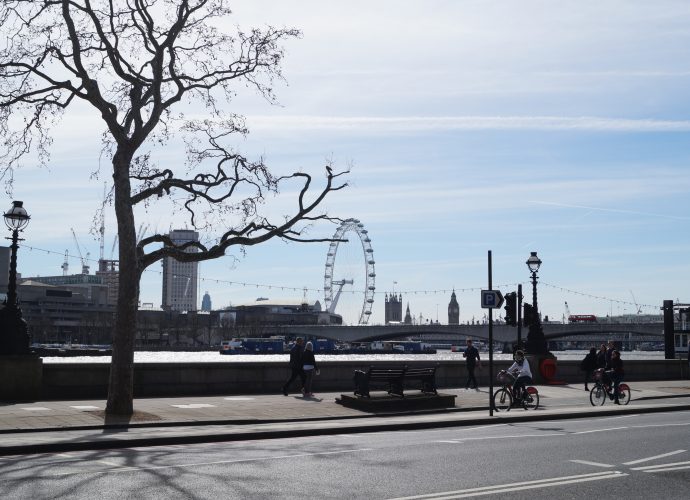The UK has entered the transition period due to last until 31 December 2020. During this period, the UK will remain in both the EU customs union and single market.
The Brexit transition (or implementation) is a period agreed in the UK–EU Withdrawal Agreement. The transition period is designed to provide time for that new relationship to be agreed while ensuring that business will only need to adapt to non-EU rules once the future deal is agreed.
Until the transition period ends, most things will stay the same. This includes:
- Travelling to and from the EU (including the rules around driving licences and pet passports)
- Freedom of movement (the right to live and work in the EU and vice versa)
- UK-EU trade, which will continue without any extra charges or checks being introduced
- UK’s participation in the EU’s economic institutions
- Security co-operation between the UK and EU (the UK will continue to have access to Europol and EU databases)
From 1 February, the UK will automatically lose its membership of the EU’s political institutions, including the European Parliament and European Commission. But while the UK will no longer have any voting rights, it will need to follow EU rules until the end of the year. The European Court of Justice will also continue to have the final say over any legal disputes.
During the transition period, the UK will continue to contribute to the EU’s budget. As a member of the EU, the UK made payments to the EU budget and received funding from the EU for various agricultural, social, economic development and competitiveness programmes. Rebates from the EU reduced the country’s payments, correcting the issue of the UK making relatively large net contributions to the EU.
In 2018, the UK made an estimated gross contribution (after the rebate) of £13.2 billion. The UK received £4.3 billion of public sector receipts from the EU, so the UK’s net public sector contribution to the EU was an estimated £8.9 billion.
However, the European Commission also allocated funding directly to UK organisations, often following a competitive process. In recent years, these funds were worth around £1 billion – £2 billion to the UK. Taking into account these funds, the UK made an average net contribution of £7.9 billion between 2013 and 2017.
The UK Government says that it may pay to participate in some EU programmes after Brexit. For instance, the UK might contribute to remain in Horizon 2020, the EU’s research and innovation programme. Exit negotiations will determine the extent and cost of the UK’s future participation in EU programmes.
The idea behind the transition period is to allow new UK-EU negotiations to take place.
First, a UK-EU free trade deal will be essential if the UK wants to be able to continue to trade with the EU with no tariffs, quotas or other barriers after the transition. In 2018, total UK trade (goods and services) was valued at £1.3 trillion, of which the EU made up 49%.
During the transition, the UK will also hold formal trade talks with other countries, including the US and Australia.
Then the UK will need to negotiate with the EU on the terms of law enforcement, data sharing and security; aviation standards and safety; supplies of electricity and gas; licensing and regulation of medicines; and access to fishing waters.
Third, the UK will have to design and implement policies related to strengthening border capabilities and making changes to immigration rules once the freedom of movement enjoyed in the single market comes to an end.
The UK’s government has ruled out any extension to transition.
At the end of transition, the UK’s relationship with the EU will be determined by the new agreements it has entered into on trade and other areas of co-operation.
If no deal is reached, the UK would have to rely on previous international conventions for security co-operation and would trade with the EU on World Trade Organization terms. The exception in both these cases is Northern Ireland, whose trade in goods with the EU would be covered by the provisions in the Northern Ireland protocol.
Even without a deal, the UK would continue to follow the EU rules transferred into UK law through the EU Withdrawal Act 2018, Institute for Government explained. At the end of transition period, the UK would be able to diverge if it decided not to follow future changes in EU law, if UK courts decided to interpret existing EU law differently or if the government introduced changes into UK law.
No deal on the future UK-EU relationship will still leave the Withdrawal Agreement in place: citizens’ rights will be protected, the UK will remain committed to the financial settlement and Northern Ireland trade will be covered by the protocol.
Last week, Chancellor of the Exchequer Sajid Javid told the World Economic Forum that a comprehensive deal can be reached by December. But the negotiations over Britain’s future relationship with the EU is a concern. ECB chief Christine Lagarde fears that Europe might face a Brexit “cliff edge” at the end of this year: “Brexit is a little bit less uncertain, but we still have that possible cliff edge in December of 2020. We don’t’ know exactly what the trade relationship will be. And it’s a big partner for the euro area, so that’s certainly a question mark.”
Additional reporting by Karolina Stawicka
Image: London, UK / MIB











Thanks!
Our editors are notified.